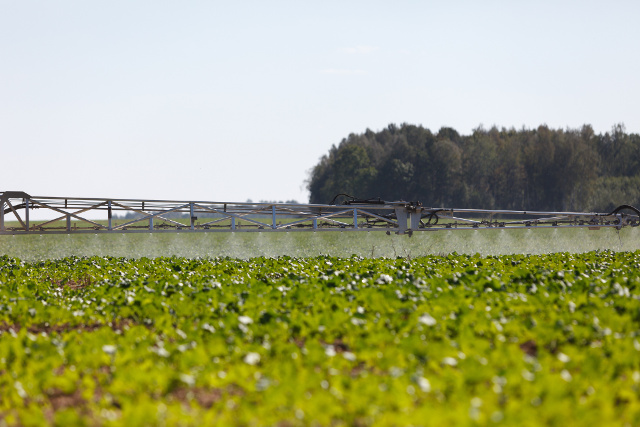We at HPDI have long advocated consuming organic produce. There are many reasons for choosing organic over conventional produce, including greater nutritional value and avoidance of genetically modified organisms (GMOs).
Another major reason for consuming organic produce is avoiding exposure to toxic pesticides, including organophosphate pesticides. Pesticide exposures can poison the body and weaken overall health. They especially can harm children, as well as disrupt normal development of unborn children.
Avoiding exposures to toxins (or preventing toxicity) is an important part of the HPDI Rejuvenation Program. It has become clear that consuming organic produce reduces pesticide exposures, and thereby helps reduce the body’s toxic load.
Consuming organic foods may not be sufficient to prevent toxicity or significant exposure to toxins given the fact that pesticides and other toxins are ubiquitous in the environment (air, water, and soil). Periodic juice cleansing for your liver or kidneys supports elimination of toxins from the body.
A recent study published in Environmental Health Perspectives (Environ Health Perspect; DOI:10.1289/ehp.1408197) highlights the important role played by consuming organic produce in reducing exposure to organophosphate pesticides.

The study is titled, “Estimating Pesticide Exposure from Dietary Intake and Organic Food Choices: The Multi-Ethnic Study of Atherosclerosis (MESA).” Here we present a summary of the study published in Environmental Health Perspectives.
Estimating Pesticide Exposure from Dietary Intake and Organic Food Choices: The Multi-Ethnic Study of Atherosclerosis (MESA)
ABSTRACT
Background: Organophosphate pesticide (OP) exposure to the US population is dominated by dietary intake. The magnitude of exposure from diet depends partly upon personal decisions such as which foods to eat and whether to choose organic food. Most studies of OP exposure rely on urinary biomarkers, which are limited by short half-lives and often lack specificity to parent compounds. A reliable means of estimating long-term dietary exposure to individual OPs is needed to assess the potential relationship with adverse health effects.
Objectives: We assessed long-term dietary exposure to 14 OPs among 4,466 participants in the Multi-Ethnic Study of Atherosclerosis, and examined the influence of organic produce consumption on this exposure.
Methods: Individual-level exposure was estimated by combining information on typical intake of specific food items with average OP residue levels on those items. In an analysis restricted to a subset of participants who reported rarely or never eating organic produce (“conventional consumers”), we assessed urinary dialkylphosphate (DAP) levels across tertiles of estimated exposure (n=480). In a second analysis, we compared DAP levels across subgroups with differing self-reported organic produce consumption habits (n=240).
Results: Among conventional consumers, increasing tertile of estimated dietary OP exposure was associated with higher DAP concentrations (p<0.05). DAP concentrations were also significantly lower in groups reporting more frequent consumption of organic produce (p<0.02).
Conclusions: Long-term dietary exposure to OPs were estimated from dietary intake data, and estimates were consistent with DAP measurements. More frequent consumption of organic produce was associated with lower DAPs.
Citation: Curl CL, Beresford SA, Fenske RA, Fitzpatrick AL, Lu C, Nettleton JA, Kaufman JD. Estimating Pesticide Exposure from Dietary Intake and Organic Food Choices: The Multi-Ethnic Study of Atherosclerosis (MESA). Environ Health Perspect; http://dx.doi.org/10.1289/ehp.1408197.
Read this scientific article on Environmental Health Perspectives website: http://ehp.niehs.nih.gov/1408197/
WHAT YOU CAN DO TO AVOID PESTICIDE EXPOSURE
Consuming organic foods not only means greater nutritional value and better taste, it also means you reduce exposure to toxins like organophosphate pesticides that can cause significantly harm.
More pesticides than ever are being applied, and more potent ones. This is due to a combination of factors, including the expansion of genetically modified (GMO) crops. In addition, the development of resistance to pesticides means more are used in order have the desired (i.e., toxic) effects.
Protect yourself from pesticide exposure by consuming more organic foods, and following other recommendations in the HPDI Rejuvenation Program.



